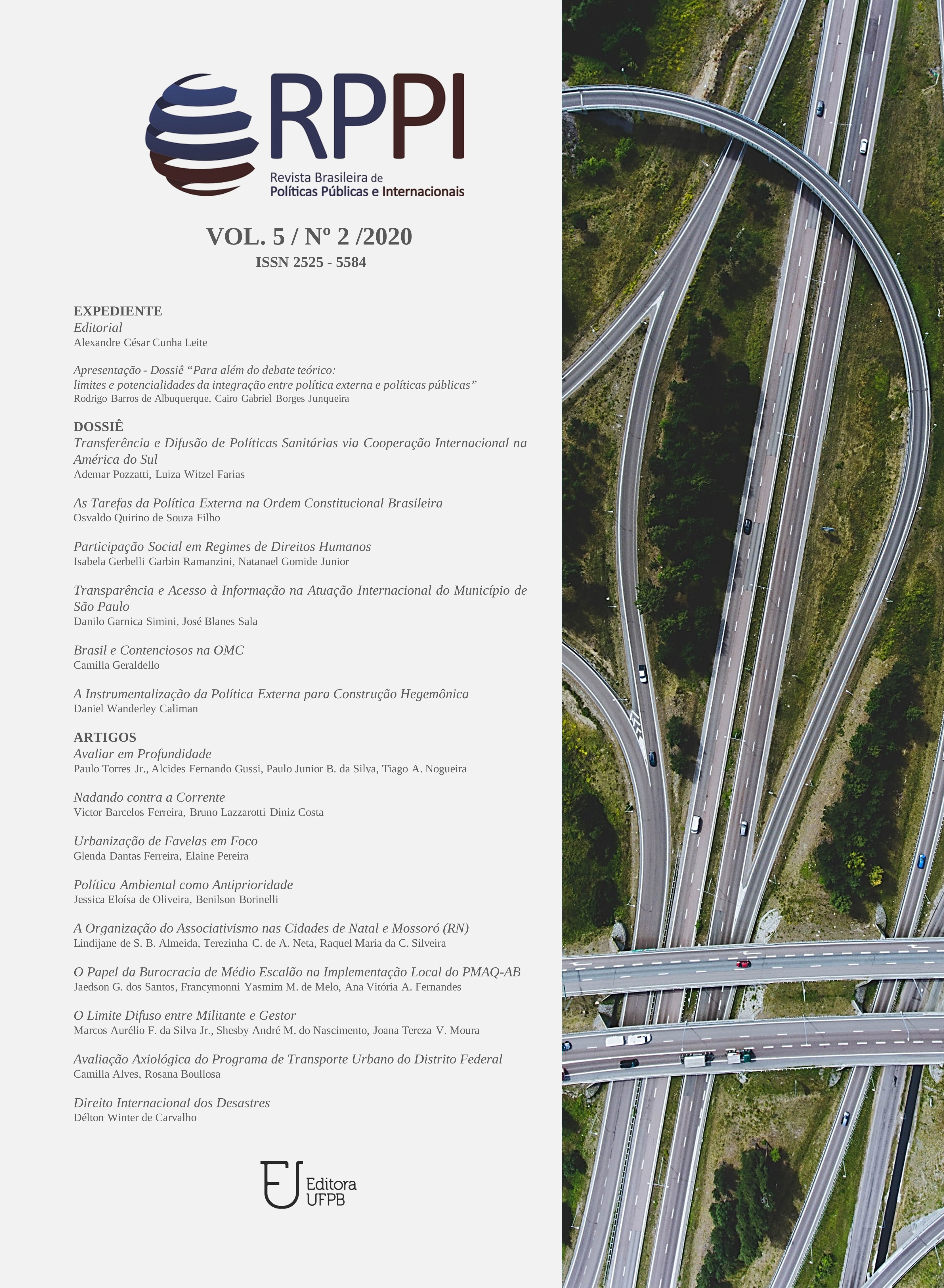The Role of Mid-Level Burocracy in the Local Implementation of PMAQ-AB
A Study with Basic Healthcare Unit Directors in the Municipality of Natal/RN
DOI:
https://doi.org/10.22478/ufpb.2525-5584.2020v5n2.52572Keywords:
Mid-level bureaucrats, Implementation, PMAQ-AB, BHU directors, Street-level bureaucratsAbstract
The objective of this article is to analyze how mid-level bureaucrats, in the processes of interaction with street-level bureaucracy, influence the local implementation of a national health policy. To this end, the implementation of the Programa Nacional de Melhoria do Acesso e da Qualidade da Atenção Básica (PMAQ-AB) was taken as a study object and, through the application of qualitative methodological techniques, the study was conducted in the city of Natal / RN. The global results showed that mid-level bureaucrats, in the figure of BHU directors, have a determining role in transmitting and translating what was previously formulated in the policy's normative design for implementing agents at the front, represented by the members of the primary care teams working in the BHU. In addition, it was identified that the way in which this transmission and translation of the normative design occurs, as well as the attitude in promoting transmission and translation, is variant and conditioned by technical, cognitive and political-relational aspects related to the profile of the director from BHU.
Downloads
Downloads
Published
Issue
Section
License
Autores que publicam nesta revista concordam com os seguintes termos:- Autores mantém os direitos autorais e concedem à revista o direito de primeira publicação, com o trabalho simultaneamente licenciado sob a Licença Creative Commons Attribution que permite o compartilhamento do trabalho com reconhecimento da autoria e publicação inicial nesta revista.
- Autores têm autorização para assumir contratos adicionais separadamente, para distribuição não-exclusiva da versão do trabalho publicada nesta revista (ex.: publicar em repositório institucional ou como capítulo de livro), com reconhecimento de autoria e publicação inicial nesta revista.
- Autores têm permissão e são estimulados a publicar e distribuir seu trabalho online (ex.: em repositórios institucionais ou na sua página pessoal) a qualquer ponto antes ou durante o processo editorial, já que isso pode gerar alterações produtivas, bem como aumentar o impacto e a citação do trabalho publicado (Veja O Efeito do Acesso Livre).




_.jpg)






.png)


.jpg)
_.png)
